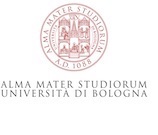 |
The World in a Container!
|
|
Looking at contemporary planetary cartographies (see for example: https://www.shipmap.org), we see oceans and seas as spaces of perpetual circulation. Those liquid spaces are infrastructuralized by “invisible highways” for shipping containers. Today, an estimated 90% of the world’s goods are transported by sea, with 60% of that – including virtually all your imported goods and appliances – packed in large steel containers. During the Covid-19 pandemic, the “supply chain disruptions” (the numerous breakdowns in the manufacture flow of goods and their delivery to customers) has been one of the most relevant phenomena, showing the strategic importance of contemporary logistics. The Into the Black Box research collective will critically investigate this geography of contemporary global logistics by presenting a genealogical investigation in three acts. Act 1 – Historical Coordinates: Atlantic slaves, Steam Ships, Trans-Oceanic Infrastructures «Global capitalism is a seaborne phenomenon». This is the incipit of the last book of Liam Campling and Alejandro Colàs, titled Capitalism and the Sea. Global capitalism, we would stress, is a seaborne phenomenon arisen with the slave trade and the rise of the Company-States like the East India Company. In Act 1 we will dig into capitalism origins, proposing a sea-oriented perspective of its development and focusing on the resonances with the global present. Act 2: From the Logistics (Counter)Revolution to the Blockage of the Suez Canal The 60s constitute a turning point in global value chains: logistics became the matrix for the re-organization of economies, with circulation imposing its domain on production. The material and symbolic innovation boosting these transformations is the container. Act 2 will analyze the main features of logistics (counter)revolution and its impact on globalization until nowadays when a ship stranded in a canal may mess up world economy. Act 3: Container World, Global Supply Chains, Counter-Logistics Struggles The pandemic contributed to show to a general public the crucial relevance of logistics for capitalist societies. Logistical services have been declared “essential” by many governments, involving from historical logistical places like ports and warehouses to the last mile logistics (drivers of Amazon or Alibaba, food-delivery riders, and so on). However, specular to this logistics of capital, a counter-logistics of struggles have emerged in the last decade. Act 3 will present Logistics as a critical lens for interpreting this twofold perspective. |
|
Into The Black Box is a project of multidisciplinary and collective research that adopts logistics as a point of view on contemporary political, economic and social transformations. It started with a research project by some PhD scholars of the University of Bologna on supply chain development and conflicts in North Italy; the output of this work has been presented during the Berlin summer school “Teaching the Crisis” in September 2013. We conceive logistics not simply as commodities circulation, but rather as a whole biopolitical apparatus that performs spaces, subjects and powers. “Assemblage”, “connection”, “disruption”, “hub” are becoming central categories for a critical theory that aims to understand globalization processes, labour transformations, dynamics of territorialisation and de-territorialisation, processes of subjectivation. The black box is the symbol of contemporary management techniques and devices that hide the whole logic of the system to external viewers. Similar boxes are all around us: in platform capitalism, in urban planning, in labour organisation, in State governance. A way to penetrate the opacity of the system is to analyse inputs and outputs, operations and consequences, procedures and resistances. So, a multidisciplinary approach that combines sociology and anthropology of labour, political theory, ethnographic inquires and historical perspective could be a flexible tool to shape a logistics understanding of contemporary world. Into the Black Box is now a blog which hosts materials (events, articles, conferences) that contribute to curry this research on. |



